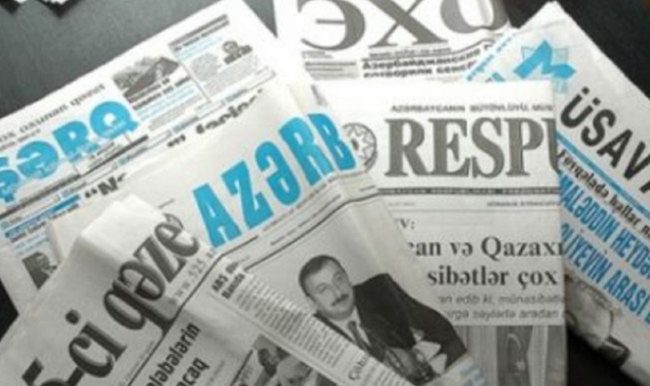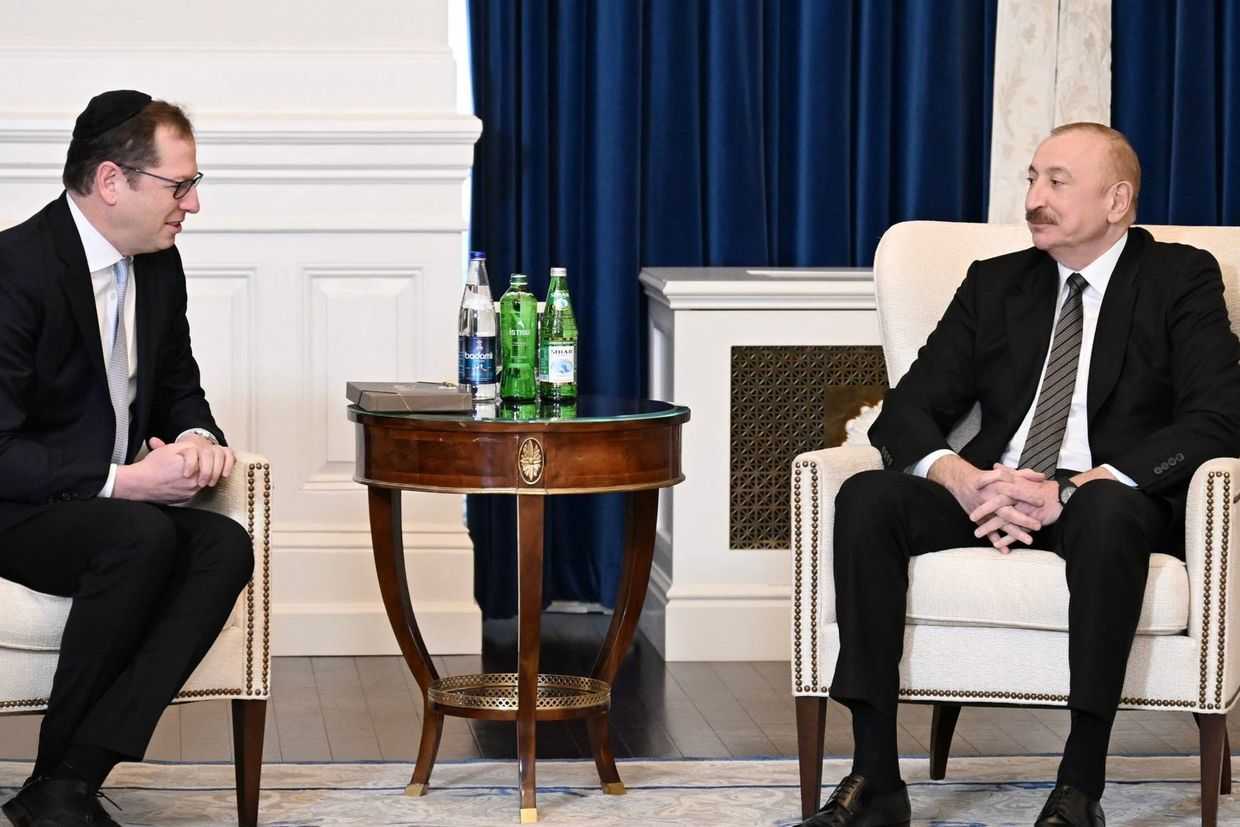

 Azerbaijan celebrated National Press Day on Sunday, marking the 143rd anniversary of the establishment of national press. As the country commemorated the founding of its first newspaper, Akinchi, in 1875, free speech and journalism advocacy groups highlighted Azerbaijan’s poor record in media freedom.
Azerbaijan celebrated National Press Day on Sunday, marking the 143rd anniversary of the establishment of national press. As the country commemorated the founding of its first newspaper, Akinchi, in 1875, free speech and journalism advocacy groups highlighted Azerbaijan’s poor record in media freedom.
According to the World Press Freedom Index of Reporters Without Borders (RSF), in the same month as it marked National Press Day, the government shut down four oppositional websites, including the Bastainfo.com, a site sympathetic to the opposition Musavat Party. The site’s editor, Mustafa Hajibayli, was interrogated for five days according to the Turan Information Agency. In the same month, journalist Afgan Sadigov, the founder and editor of regional news-site Azel.tv, was arrested, the 165th media worker currently imprisoned, according to RSF.
The government said the crackdown on online news outlets was related to the 3 July assassination attempt on Ganja Mayor Elmar Valiyev, and a rally a week later in which two police officers were killed.
[Read more about the violence in Ganja on OC Media: Two police officers killed in Ganja rally after botched assassination on mayor]
Azerbaijan was ranked 163rd of 180 countries in RSF’s 2018 Index.
On 16 July, President Aliyev signed a decree allocating ₼1 million ($590,000) to develop the ‘material and technical base’ of local media outlets. The Azerbaijani government has allocated ₼35 million ($21 million) to the Fund of State Support for Development of Mass Media.
Freelance Journalist Seymur Kazimov told OC Media that the press in Azerbaijan remains fully controlled politically and economically by the authorities. According to him, media outlets that receive government support do not provide people with adequate reporting, and the those that highlight problems face obstacles from state bodies. ‘They were given money for their silence’, said Kazimov.
Kazimov criticised the State Fund for Support for Media Development, set up under the President of Azerbaijan, saying that such institutions must be independent and their management should be determined with public involvement instead of by the presidential administration. According to him, Azerbaijan’s Press Council is formally independent but ‘also supports the government’s policies’.
In 2010, Aliyev announced plans to improve ‘social’ and ‘housing’ conditions for media workers in Azerbaijan, allocating ₼5 million from the state reserve fund. On National Press day in 2013 and 2017, he awarded flats for journalists in a new 17-floor building constructed for this purpose. A third building with 255 flats is currently under construction.
On 18 July, the OSCE Office for Democratic Institutions and Human Right (ODIHR) published its final report on April’s early presidential election in Azerbaijan, saying that the main media outlets in the country, formally state-run, publicly financed, and independent, were all directly influenced by the government.
According to the report, ‘websites and social networks [are] the only potential platform for alternative and critical viewpoints’. The report also slammed the government’s extrajudicial blocking of websites critical of the government. Despite restrictions, the ODIHR noted that print and online media provided a relatively more diverse range of views than television during the pre-election period.
[Read more about Azerbaijan’s media environment: The struggle to tell the truth: big money and hostile courts in Azerbaijan’s media]









